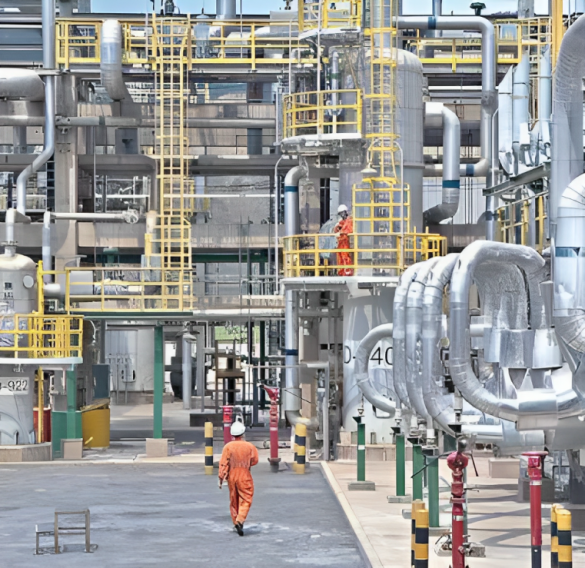KEY POINTS
- Nigeria’s Dangote refinery cuts European gasoline exports to West Africa by one-third.
- Refinery closures loom as margins collapse, with Lindsey in the UK already shut.
- Analysts warn up to 600,000 bpd of European capacity may be at risk.
Global fuel trade routes are being redrawn by Nigeria’s $20 billion Dangote refinery, endangering the existence of some of Europe’s most vulnerable plants.
Refiners throughout the continent are dealing with declining margins, growing inventories, and the threat of permanent closures as Africa’s largest refinery increases production and reduces imports of gasoline from Europe.
The 650,000 barrels per day facility outside of Lagos has quickly expanded since it opened in September 2024, processing almost 600,000 barrels of crude in July alone. West Africa’s dependency on European gasoline, which was once one of the most dependable export markets for refiners from Rotterdam to the Mediterranean, has decreased as a result of that output.
According to industry data, between January and July 2025, shipments of European gasoline to West Africa fell to 285,000 barrels per day, a one-third decrease from the same period the previous year. Nigeria now only makes up one out of ten barrels of gasoline, which is a significant change for refiners used to the country absorbing one out of every five barrels.
Margins collapse as oversupply squeezes refiners
The repercussions can be seen in all of Europe’s refining centers. According to Argus Media, gasoline stocks in Rotterdam, the continent’s main trading hub, have increased by 9% in the past year. According to analysts, refiners whose business models depend on consistent gasoline exports have seen their margins drop to unprofitable levels.
A lesson has been learned from the July closure of the UK’s Lindsey refinery, which occurred after its US owner Prax was unable to find a buyer. Prior to being forced offline due to insolvency, Lindsey produced roughly 50,000 barrels of gasoline per day. Although analysts caution that many refineries lack such flexibility, Valero, another US operator, moved some production to its Pembroke facility in Wales.
“The loss of Nigeria as a reliable outlet is a structural blow,” said one Oxford Energy economist. “Unless refiners cut capacity or retool for other products, more closures are inevitable.”
Some refiners are attempting to pivot to diesel, which has seen strong demand from freight and industrial sectors. But Europe’s structural oversupply in petrol, coupled with increasing competition in Latin America and Asia, leaves few easy options. Analysts estimate at least 600,000 barrels a day of European refining capacity may need to shut or be redirected to avoid a worsening glut.
Dangote’s rise reshapes global fuel dynamics
Nigeria’s fuel economy is rapidly changing thanks to the Dangote refinery, which was funded after years of delays and billions of dollars in investment. Local refinement of domestic crude lowers the nation’s import costs, improves energy security, and protects the economy from supply disruptions around the world. It has become a new power center in the Atlantic Basin, processing various grades of crude and producing jet fuel, diesel, and gasoline.
In contrast, European refiners are facing challenges related to their long-term sustainability. Older plants are most at risk, especially those that are confined to producing a lot of gasoline. This challenge may be harder for facilities to handle, even those that have withstood previous pressure from Middle Eastern megaprojects and US shale exports.
“This is not a passing phase,” one refining consultant said. “Dangote has changed the rules. European refiners must either adapt their product mix or prepare for more casualties.”



